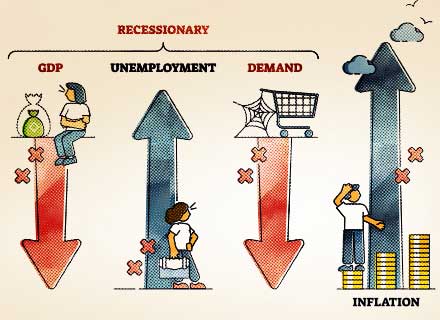The World Bank has a gloomy once-in-a-generation prediction for the years to come. The last time stagflation happened was in the 1970s, when twin oil shocks crippled growth and hiked prices.
The bank slashed its global growth prediction from 4.1% in January to 2.9%. It is a very alarming statistic but not so far-fetched considering we are amidst a pandemic, a European war, global civil discord, and supply-chain disruptions.
The bank said this is the sharpest plunge the global economy took after a post-recession rebound in nearly a century. Experts don’t expect much improvement in the next two years either.
There is also the risk of a global food crisis because of the Ukrainian war. David Malpass, president of a Multilateral Development Institution in Washington, said if the worst materializes, there would be zero growth in the next two years.
However, not everyone is a pessimist. Nathan Sheets, the chief global economist of Citigroup, said that the chance of stagflation in the US is remote. He urged policymakers to nullify or mitigate the consequences of the war in Ukraine. He also stated the need to provide debt relief to countries and help them pay for food and fuel while evading the trap of distortionary policies like price control and export bans.
Malpass remarked that the ideal way to fight inflation was by increasing production capacity for key goods, but he sees no such efforts. The energy market disruption due to the Russian invasion has brought Europe to the brink of a recession. As the continent weans itself from Russian oil, it finds that alternative suppliers are struggling to keep up with demands. The price of a barrel of crude has shot up by 50% this year.

